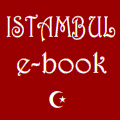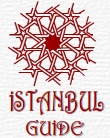|
Turkish Women, a brief historical survey
During the first centuries of Islam, beginning 7th century A.D., women were still equal with men. Mohammed, the prophet had his wife Hatice ride with him through the battle fields. She was faithful and wise consultant to the prophet. Fadima, the daughter of the prophet, enjoyed the same equality with her husband Ali, one of the disciples of the prophet who became the 4th caliph of Islam. During the Seljuk Empire women had equal rights and rank to men. Quite a number of Seljuk monuments still existing in Anatolia bear the names of Seljuk women. Those monuments were erected by those women themselves or by the Seljuk community in their memory. With the Islam and
Permission of Polygamy, the woman status changed. Religion
laws gave way to opportunists who degraded the rights of women.
While in big cities women could not even be seen in the streets
walking with anybody except her husband, the conception of
behavior in Anatolia among the nomad women was quite different.
The nomad woman was not suffering from the misinterpreted
faith of the Islam but helping her husband in the fields,
in sheep raising, in cattle breeding, dairly farming, etc.
Prior to Ataturk and his reforms,
the first movement to regain social and educational rights
of women started right after the ottoman reformation which
took place in 1839 with the declaration of a creed caled in
Turkish "Gulhaney-i Hatti Humayun" which with a
literary translation means "The royal creed of Gulhane".
This declaration which aimed to the modernization of the Empire
was fostered by the Grand Vizier (Prime Minister) of the time
K. Resit Pasa. The emancipation of women was heard from a
handful of intellectuals, including women writers and poets.
By this time there was a minority of enlightened women in
Istanbul who had been exposed to western culture and were
dissatisfied with their suppressed status. These movements
expanded among big cities of Anatolia but hardly reached the
rural areas. That is why in reviewing the status of women
in Turkey one should not forget to make distinction between
the urban woman and the rural woman. The rural woman compromise
72% of the female population.
During the Balkan War (1912-1913) and the 1st World War (1914-1918) some Turkish women entered labor markets, municipal and administrative services replacing the men who went to the front. They also took jobs in hospitals doing voluntary work. They dressed less rigidly in the public and the veil covering their faces became more transparent. This picture was true for the urban elite and urban middle classes because the majority of women who lived in rural areas, shared the hard work of men in the fields. Turkish women were also very active during the Turkish War of Independence (1918-1923). These women who look an active part in the War of Independence will always be remembered by the Republic with deep respect and pride. Several of them became famous for acts of patriotism; but, as in every national struggle countless more, unknown women contributed their bit without which the war might well have failed. With the country under occupation, they helped organize protest meetings and marches in cities and towns and prayers in every mosque. As the war developed, they picked up the work of the men in the fields, trundled food and ammunition to the soldiers at the front and nursed the wounded. Some even were soldiers themselves. The first organized women's revolutionary movement in Anatolia took place in Erzurum (north eastern part of Turkey). The second mass movement was the foundation of the ANADOLU KADINLARI MODAFAA-I VATAN CEMIYETI (Anatolian Women's for Patriotic Defense). This Association held a meeting in Sivas at 1919 calling for all Turkish women to exercise close cooperation. Women flocked to join this organization and its support was greatly appreciated by the Grand National Assembly seated in Ankara. The Association was very active during the war in helping the resistance movement, in making large scale contributions and in protesting vigorously against the occupation. On the other hand Anatolian peasant women took a very active part in the war of independence. They carried ammunition, cannon balls on their shoulders to the battle fields. They even organized military attacks. The full emancipation of Turkish women took
place after the proclamation of the Turkish Republic
in 1923. This was because of Mustafa
Kemal Ataturk founder of modern Turkey who made the
advancement of women, a central aim of his social, religious
and legal reforms by means of which
he transformed Turkey into a Western Democracy. Thus, after
hundreds of years of waiting and
striving Turkish women have been able to realize their potential,
Under the leadership of Ataturk
and his colleagues, laws recognizing the principles of equal
citizenship were passed.
In his public speeches Ataturk made this very clear, In 1923 he said "If our nation now needs sciences and knowledge, men and women must share them equally. Obviously society creates a division of labor, and in this division women should carry out their own duties as well as contribute to the general effort to improve the happiness and well-being of our society." In old days our forefathers were aware of this fact, and our history bears witness to the zeal, the abilities and virtue of Turkish women. Perhaps the most important quality they possessed was that of bringing up their children to be worthy citizens. Our nation was powerful in Asia as well as in Europe, and the brilliance of our history is due to those maternal influences which enable talented children to be educated and inspired by a true sense of honor and courage. I would emphasize again that, apart from the public responsibilities they bear, women have the highly important duty of being successful mothers. The adoption of a new civil law in 1926 based on the Swiss Civil Code was the most important of Ataturk's reforms which tremendously effected the status of Turkish women. Providing equality before the law, it also replaced religious marriage with civil marriage, made polygamy illegal and gave women equal rights of inheritance, guardianship of children and divorce. Previously, Turkish men could have as many as four wives at a time, and divorce them at will with no recourse to legal action. When the Military law was discussed at a debate in the Grand National Assembly in 1927 the subject of eligibility of men for the office of deputy arose. Every speaker came out in favor of granting women the right to vote and to be elected to office. But still there was no movement to amend the electoral laws. Four years later, in 1930 when public opinion had been prepared for change, the municipal electoral laws were modified. On the 5th of December 1934 a law concerning the election rights of women was debated in the Grand National Assembly, It had been signed by 191 of the deputies as it was presented. The bill for the new legislation is highly important in Turkish history and for the women of Turkey because it proposed that: 1. Every Turkish citizen who has reached the age of twenty-two, man or woman alike, has the right to vote in general elections. 2. Every Turkish citizen thirty years of age or older, man or woman alike is eligible for election to parliament. Today men in Turkey make up nearly one half of the country's rapidly increasing population. % 53 of the population is urban and % 47 represents those who live in rural areas. However we cannot consider this ratio as static because there is a rapid immigration from rural to urban areas. Although family planning has been a state policy since 1965 only in 1983 a new law was adopted which enables women to exercise their birth control rights, and makes abortion legal under certain conditions. In education, according to 1995 census, the literacy rate of women is 75% versus 89% for men. This literacy rate of women is remarkable when compared with the literacy rate of men back in 1935 when it was only 9.8% Today, in professional and academic activity,
Turkish women are at an exceptionally high level.
In the prestigious professions which are generally considered
men's domain such as law, medicine,
engineering, architecture, they have excelled their counter-parts. On March 1st, 1935, eighteen women deputies were elected to the Grand National Assembly. In the years following 1935, a total of 102 women have been elected to the parliament. Some of them served for successive terms.Most of those elected to the Parliament have come from the teaching profession. They have been both primary school teachers and university professors. The second largest group have been lawyers. Medical doctors formed the third largest professional group. Women deputies in Parliament have always shown great interest in every aspect of public life, but they have particularly been active in public health, education, care for the elderly and child welfare. An analytical survey conducted in 1989 shows that of the 30.000 members in 30 universities there are women chairholders, deans and institute directors. They have served as university president and member of higher Education Council. Studies show that academic women are not faced with sex discrimination in their careers. As to women in politics: According to the United Nations studies in 1989, at the cabinet level, only %3,5 of the ministries in 155 countries are held by women. Out of those 155 countries 99 countries have no women ministers. In 1989 elections Prof. Tansu Ciller a woman professor of economics and a parliamentarian was elected to the prime minister's office in Turkey. In 1985 Turkey signed the UN Convention on the elimination of all forms of discrimination against women. Today Turkey has a government sponsored general
directorate under a woman minister which is In conclusion we can say that the status of
women in Turkey doesn't represent a homogeneous I wish to close my paper by quoting from Ataturk the following lines: "There is a straighter and more secure path for us to follow than the one we have been. This is to have turkish women as partners in everything, to share our lives with them, and to value them as friends, helpers and colleagues in our scientific, spiritual, social and economic life." This text was part of the seminar "Turkish
Women, a brief historical survey" kindly given by Ayse
More articles related to Women in Turkey: Women and Islam Hope you enjoyed our
article! Thank you for visiting our site !
|
|
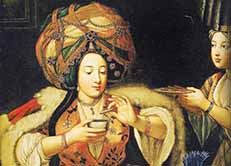
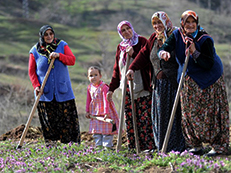
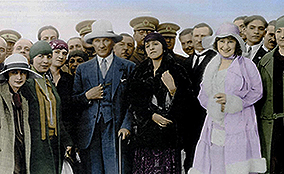
 gmx.co.uk
gmx.co.uk 